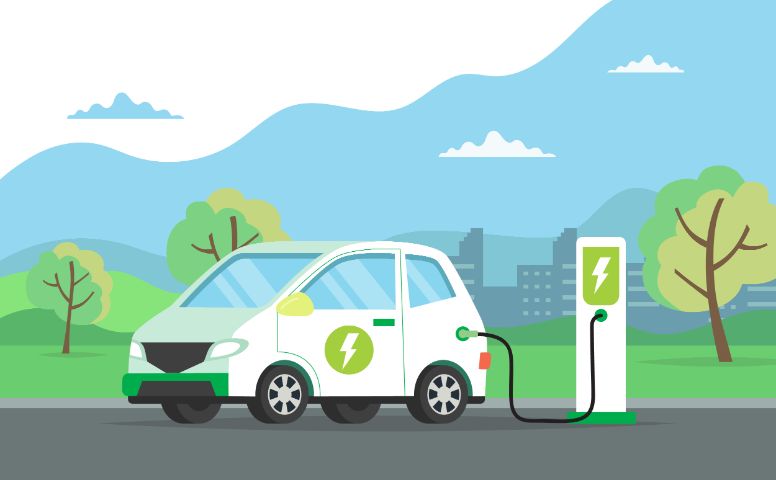Nitrogen vs. Normal Air for Tyres – What is the Difference?
Nitrogen vs. Normal Air for Tyres – What is the Difference?

When it relates to your trusted car and your car insurance comprehensive plan, you're often asking essential issues such as, "Is it time to replace the oil? Is it necessary to rotate my tyres?" Those are both crucial concerns to ponder, but there's another query raising on the horizon: "Should my tyres be inflated with nitrogen air or normal air?" Nitrogen has become a popular option for many drivers, while it may not be appropriate for everyone.
To determine the best option for your car, let's dive into the recent nitrogen air vs. normal air argument
1. Cost and Ease
Every cost-conscious person gets a warm sensation when they hear the term "economical." If we particularly refer to vehicle tyre filling, the air is virtually generally accessible at practically no cost. Any repair store, service stop, and gas station will do it for you for a low cost.
Nitrogen air, on the other hand, is not in this category. The system is not yet completely constructed, and in many locations, nitrogen gas is not even available. The particular places where it is available, you may be charged anything from 40-50 INR for a single tyre. Switching air to nitrogen-filled tyres necessitates numerous cycles of inflation and deflation to remove all of the air from the tyre. To be entirely effective, the nitrogen air should hold around 93-95% pure nitrogen.
In the event of a sudden deflation, however, inflating with 'normal' air will not impair the performance of tyre.
2. Tyre Aging and Wear
The oxygen content of air is roughly 21% and the nitrogen content is roughly 78%. The capacity of oxygen to hold back humidity inside the tyres might eventually oxidize the polymer or the internal wall casing, resulting in premature wear of the tyre. The steel reinforcing belt might corrode over time in severe circumstances.
Nitrogen air, on the other side, is dry air that does not support humidity and can help to reduce tyre wear and wheel corrosion. Most experts believe that under regular day-to-day driving situations, oxidation will not occur until the tyre's tread approaches its minimal useful depth.
However, unless your car or bike is resting in place, as in the current epidemic situation, the operational advantage is minimal in regular driving conditions.
3. Tyre pressure maintenance
When it relates to loss of inflated pressure, nitrogen air has a little advantage. This is due to the fact that Nitrogen molecules are bigger than those of air, causing them to move slowly and retain pressure for a longer period of time.
However, to be completely honest, this distinction is not big enough to conclude that nitrogen air is superior to normal air for tyres. If you monitor your tyre pressures on a regular basis, you will barely even detect the difference.
4. Cooling
When compared to normal air, Nitrogen does not store humidity and the pressure of the tyre is way more predictable owing to temperature changes. This also implies that the tyre will stay cooler, which is important in racing vehicles or high-performance automobiles because road grip is greatly reliant on tyre temperature. So, whether it comes to racing cars or heavy equipment car tyres, nitrogen air has an edge because they are carefully tested in harsh temperatures.
5. Insurance Coverage
According to the Motor Vehicles Act of 1988, it is mandatory for a car owner to have third party car insurance or comprehensive insurance to drive on Indian roads. The significance of car insurance, particularly third party insurance, is evident in meeting legal mandates and providing essential protection and financial security, reinforcing its role as a fundamental asset for every car owner. However, it is critical to know that neither of these car insurance policy coverage or premium amounts depend on the type of air you are filling your car tyre with.
Conclusion
Will you benefit from using nitrogen in your tyres? While nitrogen does have numerous benefits over regular air, the answer isn’t simple. While there are minor differences in tyre performance when using one or the other, for most people, the car will be just about as efficient and safe whether they use nitrogen-filled tyres or not.
However, if you do drive a luxury performance model and want to get that extra fraction of speed by using nitrogen, then it might be time to bite the bullet and fill those tyres with nitrogen.
Disclaimer: The above information is for illustrative purpose only. For more details, please refer to policy wordings and prospectus before concluding the sales.
RELATED ARTICLES
8 Car Maintenance Tips For Beginners To Save Time and Money!
What is the Limit on Filing Car Insurance Claims in a Year?
Is It Advisable to Keep Your Car Insurance Papers for A Long Time?
How to Change a Car Tyre? - A Step-by-Step Guide
Roadside assistance add-on comes to your rescue when you are stranded










 Health Insurance
Health Insurance  Travel Insurance
Travel Insurance  Car Insurance
Car Insurance  Cyber Insurance
Cyber Insurance  Critical Illness Insurance
Critical Illness Insurance
 Pet Insurance
Pet Insurance
 Bike/Two Wheeler Insurance
Bike/Two Wheeler Insurance  Home Insurance
Home Insurance  Third Party Vehicle Ins.
Third Party Vehicle Ins.  Tractor Insurance
Tractor Insurance  Goods Carrying Vehicle Ins.
Goods Carrying Vehicle Ins.  Passenger Carrying Vehicle Ins.
Passenger Carrying Vehicle Ins.  Compulsory Personal Accident Insurance
Compulsory Personal Accident Insurance  Travel Insurance
Travel Insurance  Rural
Rural 











